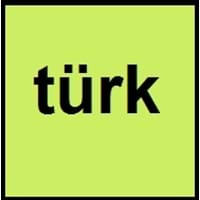Countries
South Africa
Azerbaijan, Bosnia, Bulgaria, Cyprus, Greece, Iraq, Kosovo, Macedonia, Northern Cyprus, Romania, Turkey
National Language
South Africa
Turkey
Second Language
Lesotho, South Africa
Not spoken in any of the countries
Speaking Continents
Africa
Asia, Europe
Minority Language
Botswana, Lesotho
Bosnia and Herzegovina, Greece, Iraq, Kosovo, Macedonia, Romania
Regulated By
Not Available
Turkish Language Association
Interesting Facts
- Xhosa has 15 click sounds, borrowed from the khoi-khoi and san languages of the South Africa.
- The same sequence of consonants and vowels can have different meaning when said with different tones, so Xhosa is tonal.
- Turkish language oldest written records are found upon stone monuments in Central Asia, in Orhun, Yenisey and Talas regions.
- Turkish language was developed in the Middle East, streching all the way to Eastern Europe.
Similar To
Zulu, Swazi, and Ndebele
Azerbaijani Language
Derived From
Khoi-Khoi and San Languages
Not Available
Alphabets in
Xhosa-Alphabets.jpg#200
Turkish-Alphabets.jpg#200
Writing Direction
Not Available
Left-To-Right, Horizontal
Thank You
Ndiyabulela
teşekkür ederim
How Are You?
Unjani
Nasılsın?
Good Night
Ulale kakuhle
İyi Geceler
Good Evening
Ubusuku obuhle
İyi Akşamlar
Good Afternoon
Uben' emva kwemini entle
Tünaydın
Good Morning
Molo
günaydın
Sorry
Ndicela uxolo
üzgünüm
Bye
Uhambe/Usale kakuhle
Hoşçakal
I Love You
Ndiyakuthanda
Seni seviyorum
Excuse Me
Uxolo
Afedersiniz
Dialect 1
Gcaleka
Azerbaijani Turkish
Where They Speak
South Africa
Azerbaijan, Georgia, Iran, Iraq, Russia, Syria, Turkey
How Many People Speak
Not Available
Dialect 2
Thembu
Crimean Turkish
Where They Speak
South Africa
Bulgaria, Kyrgyzstan, Romania, Russia, Turkey, Ukraine, Uzbekistan
How Many People Speak
Not Available
Where They Speak
South Africa
Moldova, Russia, Turkey, Ukraine
How Many People Speak
Not Available
Native Name
isiXhosa
Türkçe
Alternative Names
“Cauzuh” (pej.), Isixhosa, Koosa, Xosa
Anatolian, Türkisch
German Name
Xhosa-Sprache
Türkisch
Pronunciation
Not Available
[ˈtyɾct͡ʃɛ]
Ethnicity
amaXhosa, amaBhaca
Turkish
Origin
16th Century
c. 1350
Language Family
Niger-Congo Family
Turkic Family
Subgroup
Benue-Congo
Turkic
Branch
Bantu
Southwestern(Oghuz)
Early Forms
No early forms
Old Anatalian Turkish, Ottoman Turkish and Turkish
Standard Forms
isiXhosa
Ottoman Turkish(defunct)
Language Position
Not Available
Signed Forms
Signed Xhosa
Turkish Sign Language
Scope
Individual
Individual
ISO 639 6
Not Available
Not Available
Glottocode
xhos1239
nucl1301
Linguasphere
99-AUT-fa
44-AAB-a
Language Type
Living
Living
Language Linguistic Typology
Subject-Verb-Object
Subject-Object-Verb
Language Morphological Typology
Not Available
Synthetic
All Xhosa and Turkish Dialects
Most languages have dialects where each dialect differ from other dialect with respect to grammar and vocabulary. Here you will get to know all Xhosa and Turkish dialects. Various dialects of Xhosa and Turkish language differ in their pronunciations and words. Dialects of Xhosa are spoken in different Xhosa Speaking Countries whereas Turkish Dialects are spoken in different Turkish speaking countries. Also the number of people speaking Xhosa vs Turkish Dialects varies from few thousands to many millions. Some of the Xhosa dialects include: Gcaleka, Thembu. Turkish dialects include: Azerbaijani Turkish , Crimean Turkish. Also learn about dialects in South American Languages and North American Languages.
Xhosa and Turkish Speaking population
Xhosa and Turkish speaking population is one of the factors based on which Xhosa and Turkish languages can be compared. The total count of Xhosa and Turkish Speaking population in percentage is also given. The percentage of people speaking Xhosa language is 0.11 % whereas the percentage of people speaking Turkish language is 0.95 %. When we compare the speaking population of any two languages we get to know which of two languages is more popular. Find more details about how many people speak Xhosa and Turkish on Xhosa vs Turkish where you will get native speakers, speaking population in percentage and native names.
Xhosa and Turkish Language Codes
Xhosa and Turkish language codes are used in those applications where using language names are tedious. Xhosa and Turkish Language Codes include all the international language codes, glottocodes and linguasphere.





